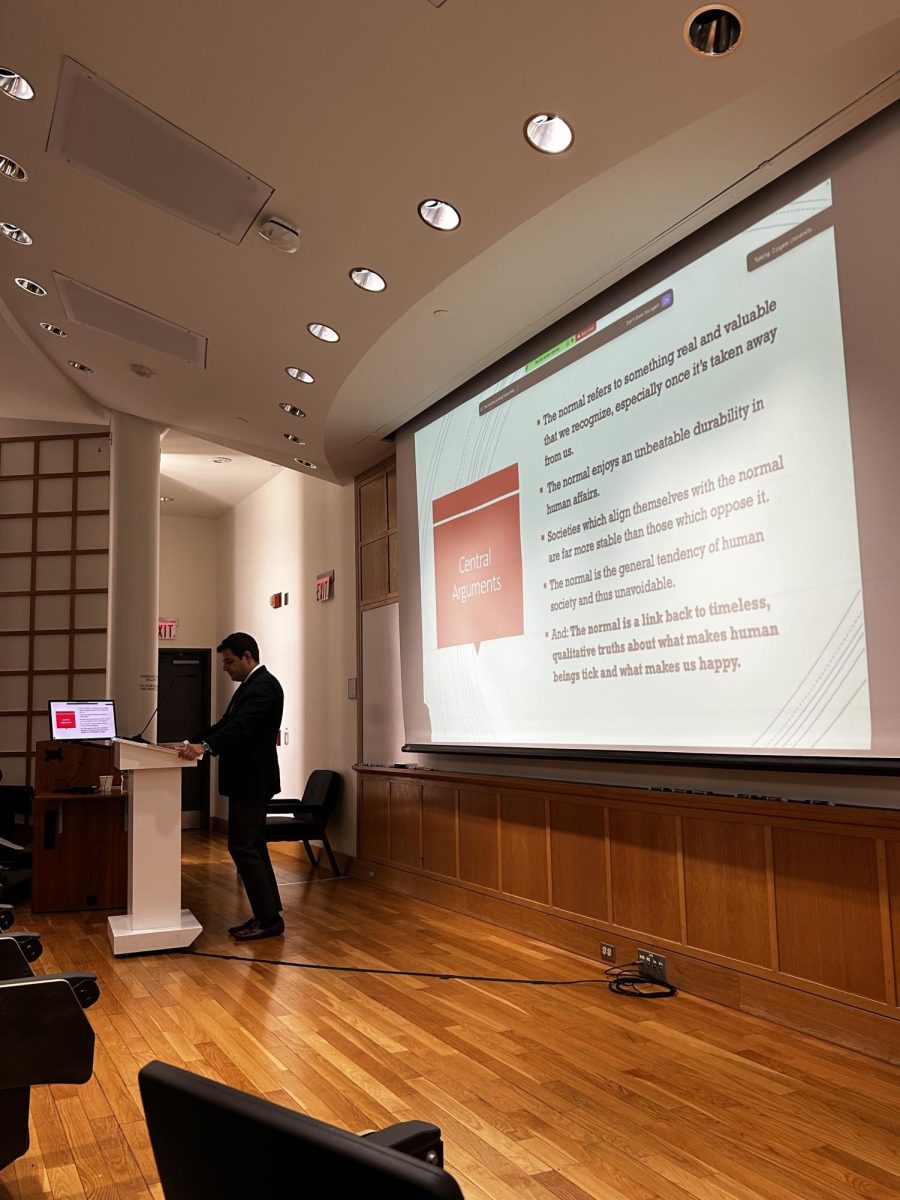Colgate University and Dining Services debuted updates to the on-campus dining experience at the start of the new academic year, reflecting a commitment towards sustainability and satisfying student desires.
Frank Dining Hall saw noticeable changes to its dining spaces, adding new flooring in a lighter color and brighter ambient lighting. Behind the scenes, the kitchens now have new cooking equipment. All of these changes, according to President Brian W. Casey, were spurred by the need to replace the building’s roof and exhaust system.
“I’m extremely proud of the fact that we have set aside funds,” Casey said. “There’s different equipment [that’s] much better, healthier. The oil is better, the way you cook is better. If you’re going to rip apart the entire exhaust system, why don’t you go and fix it?”
Sophomore Jack Antonson expressed satisfaction with the improved quality of the cooked food, especially the vegan patties.
“I’m a vegetarian — a big part of my caloric intake in the morning is from the vegan patties, and they’ve been cooking them way better this year. Last year they were so crispy and hard,” Antonson said. “I’m really glad they made that change, because when you eat four to six every morning, that’s important.”
Other service-related changes to Frank Dining Hall included an expansion of international foods with Global Cuisine, a concept station featuring flavors from around the world that rotates weekly with the well-established La Mesa station. The addition of a new serving kiosk at Frank allows students to order from the grill station and omelet station late at night and between meal times.
These kinds of additions are often generated by interactions between Colgate students and Tiffany Simmons, marketing manager of Dining Services. Simmons runs an anonymous text line where students can provide her with their feedback, desires and problems. Simmons reported that she reads every single message that she receives through this line.
“My main goal here is [to be] the liaison between the students and the staff,” Simmons said. “Anything that you want fixed, I try to make happen within a five-day period.”
Other student-centered changes included the expansion of limited-time offers at Chobani at Hieber Café and Donovan’s Pub to reflect a popular desire for seasonal menu items, as well as a 24-hour smoothie and iced coffee machine at Chobani. At the O’Connor Campus Center (Coop), an automated vending machine — called Just Baked — provides constant access to warm food, offering Starbucks breakfast sandwiches, White Castle burgers and Cinnabon cinnamon buns among a range of other diverse options.
Simmons ultimately believes that dining should be both for and by the students in this way.
“We do absolutely try to do our best,” Simmons said. “We think of this as a student-run program.”
Simmons also explained how there has been a lot of unofficial work behind the scenes on making dining at Colgate more sustainable.
“We have a ‘waste not’ effort, where we measure our waste within the back of the kitchen. Any cooking waste that we have, we measure that, and then [Campus Executive Chef Anthony Donofrio] runs analytics every week to see how we can cut down, what we could use in other places so that we’re not wasting a lot of food in the back in preparation,” Simmons said.
Dining Services also donates leftover food from large dining events to a local low-income apartment complex in their efforts to reduce waste and connect to the community. Staff from dining services hold weekly meetings with staff from the Office of Sustainability and the Community Garden to further understand their role in the sustainability sphere at Colgate and increase their own sustainability efforts.


















